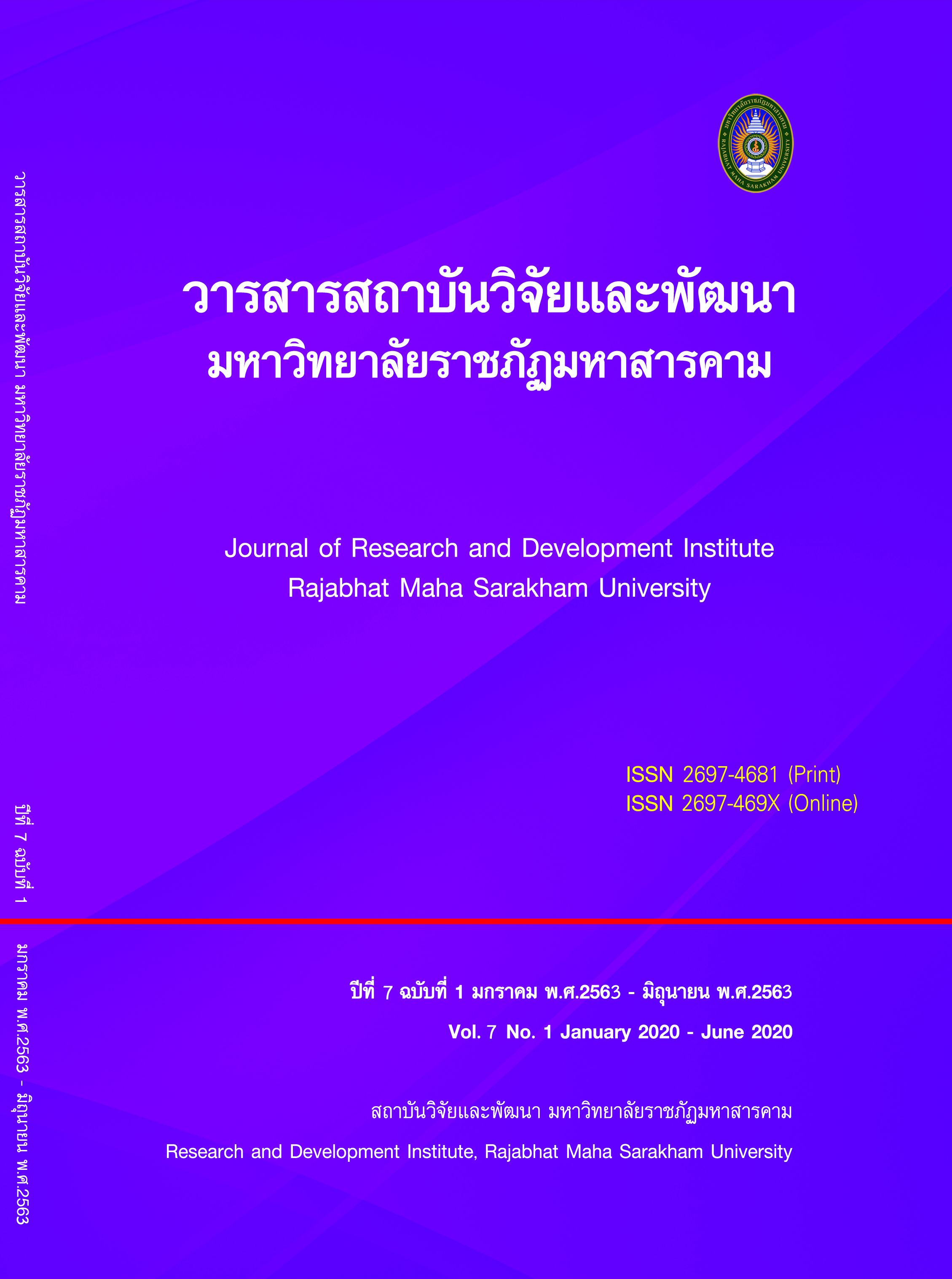Effects of 6+1 Trait Writing Model on Thai EFL Student Writing Achievements
Keywords:
English Writing, Writing Achievement, 6 1 trait writing modelAbstract
English writing is a crucial problem in the Thai EFL context as learners are required to produce accurate output in terms of both vocabulary and grammar. Therefore, there should be alternative methods to solve problems in the context as it might benefit Thai EFL development. The current study aimed 1) to investigate the effect of the 6+1 trait writing model on Thai EFL students’ writing achievements and 2) to investigate students’ attitudes toward the 6+1 trait writing model. The participants were 34 EFL students in Thailand selected by purposive sampling method. The instruments were the 6+1 trait writing model with 8 weeks of implementation, pre and post writing achievement tests, rubric assessment for writing achievement, and a questionnaire. The statistics used in data analysis were Mean Score, Standard Deviation, and t-test (dependent sample). The results of the study showed that 1) there was a significant difference between students’ writing achievements in pre and post-test with the statistical level of .05 (p=0.00) and 2) students’ attitudes toward 6+1 trait writing model was found at the high level (x̄= 4.18). It could be concluded that the 6+1 trait writing model had positive effects on Thai EFL students’ writing both in terms of writing achievements and attitudes toward learning.
References
References
Ausubel, D. P. (2000). Retention of Knowledge. Dortrecht, Netherlands: Kluwer.
Coe, M., Hanita, M., Nishioka, V., Smiley, R. (2011). An Investigation of the Impact of the 6+1 Trait Writing Model on Grade 5 Student Writing Achievement. Washington, D. C.: National Center for Education Evaluation and Regional Assistance, Institute of Education Services, U.S. Department of Education.
De Jarnette, N. (2008). Effect of the 6+1 trait writing model on student writing achievement. Lynchburg, VA: Liberty University.
Harden, R. (2007). Outcome-based education: the ostrich, the peacock, and the beaver. Med Tech, 29(7), 661–671.
Iwasaki, S. & Ingkapirom, P. (2005). A reference grammar of Thai. New York: Cambridge University Press.
Kaweera, C. (2013). Writing error: A review of interlingual and intralingual interference in EFL context. English Language Teaching, 6(7), 9–18.
Klibthong, S. (2012). Developing the understanding of the role of interpersonal interaction in early literacy development: A case study of a Thai public preschool. Australian Journal of Early Childhood, 37(3), 121–128.
Kongkerd, W. (2013). Teaching English in the era of English used as a lingua franca in Thailand. Executive Journal, 4(33), 12.
Office of Higher Education Commission. (2009). A practical model for Thailand qualifications framework 2009. Bangkok: Office of Higher Education Commission.
Qoura, A., & Zahran, F. (2018). The effect of the 6+1 trait writing model on ESP university students’ critical thinking and writing achievement. English Language Teaching, 11(9), 68–79.
Schmidt, R. (1990). The role of consciousness in second language learning. Applied Linguistics, 11, 17–46.
Silva, T. (1993). Toward and understanding of the distinct nature of L2 writing. TESOL Quarterly, 27(4), 657–677.
Spalding, E., Wang, J., Lin, W., & Hu, G. (2009). Analyzing voice in the writing of Chinese teachers of English. Research in the Teaching of English, 44(1), 23–51.
The Ministry of Education. (2008). The basic education core curriculum. Bangkok: The Ministry of Education.
Turkovitz, K. (2003). The power of the 6 + 1 traits of writing on second graders’ writing. New York: State University of New York.
Warring, R., & Nation, I.,S.,P. (1997). Vocabulary size, text coverage, and word lists. In N. Schmitt and M. McCarthy, Vocabulary: Description, Acquisition, and Pedagogy (pp. 6–19). Cambridge: Cambridge University Press.
Williams, J. (2012). The potential role(s) of writing in second language development. Journal of Second Language Writing, 21(44), 321–331.
Downloads
Published
How to Cite
Issue
Section
License
Articles that are published are copyrighted by the authors of the articles







